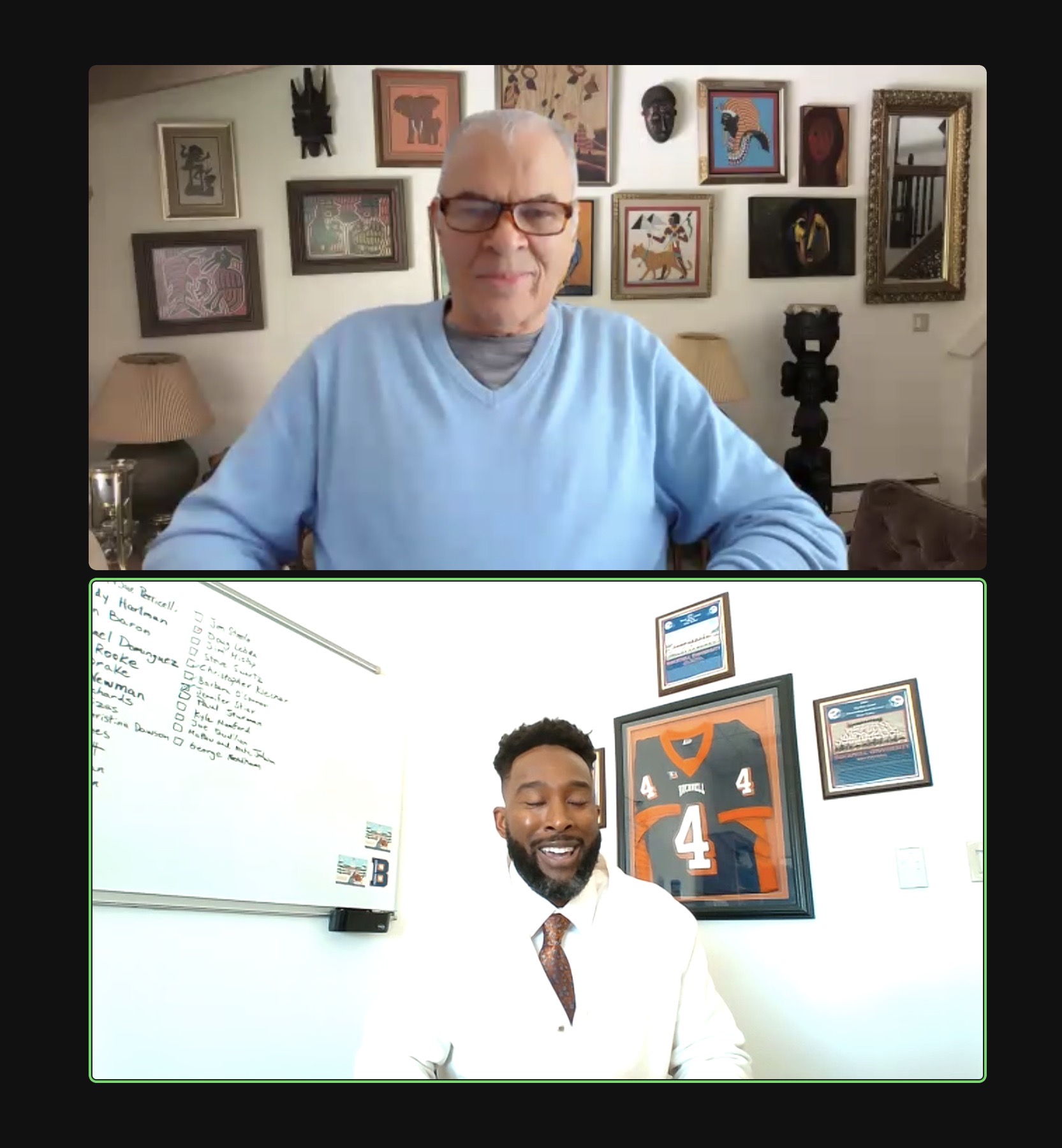Bucknell Alum Frank Wood ’62 joined us virtually to reflect on his experience during his time on campus as a student from 1957 to 1962. Frank Wood graduated with a degree in Chemical Engineering, was the first Black student President elected in Phi Lam (now Chi Phi) fraternity, and participated on the swim team, which won their first championship in 1960. After graduation, Wood traveled the world working in chemical engineering, energy services, consulting for Eastern European countries, and photography.
Interviewed by fellow Bucknell alum Nissan Trotter ’05, Wood offers a firsthand perspective on the historical societal shifts and activism. This engaging conversation between Trotter and Wood has been condensed and transcribed for easier readability.
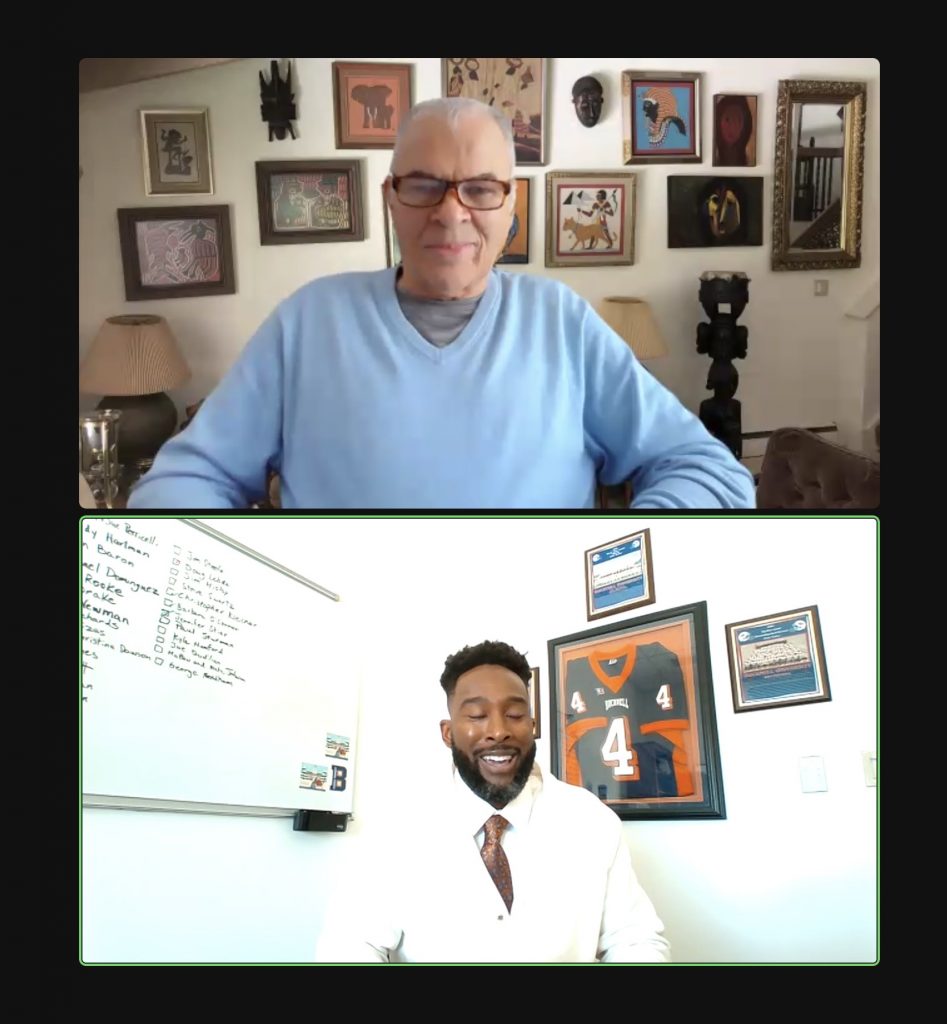
Trotter opened with thanks to the many organizations facilitating the event, noting his belief that “if you do not share your history, you will lose it.” Trotter then introduced Wood, “a living legend at Bucknell.”
“First, let me ask you how you are doing today, sir,” Trotter asks.
Smiling, Wood replies that he was “doing fine,” thanking those who tuned in and shared his hope that the following conversation would prove useful for viewers.
Diving into his questions, Trotter asks: “How did you become one of three black students to attend Bucknell in the late 50s, early 60s?”
Wood responds casually, “Well, I had no control over that. I wanted to go into chemical engineering, and after visiting Bucknell…” he smiles, “and seeing their new swimming pool, I thought Bucknell would be a good school to go to.” Wood continues, “I didn’t know how many black students were there. I just said, you know, I’m going to go there. Getting my degree was the objective. I just planned to go, compete, and do well.”
Wood’s family had a legacy of earning college educations. Trotter raises this, asking, “Your parents were scholars in their own right. Did you feel pressure from them to live up to their academic expectations?”
Wood thinks for a moment, shaking his head. “I didn’t feel any pressure. Both my parents had graduate degrees, which was rare for that time, and the rest of my family also had a history of going to college, so it was never a question for me. I actually remember when I was in grade school and got my first bad grade. My mom actually went to the guidance counselor and asked her what could be done. The counselor told her not to worry, assuring her that I probably wouldn’t end up going to college anyway. This made my mother furious– more angry than I had ever seen her before. So, I got the impression very early on that college was extremely important.”
Trotter considers Wood’s time at Bucknell, noting, “You were one of three black students on campus. What was the experience on campus like for the three of you?”
Wood states, “We were in our own independent lanes. We each came with the objective to be successful in our studies and have a good time. The three of us were in different social circles. We interacted but didn’t really go around as a group. We were doing our own things.”
Responding, Trotter recalls his own family’s experience, saying, “I was raised in the South, and my grandmother had pretty violent experiences of racism. When you speak of your time on campus, being one of three blacks, I think my grandmother would have a hard time understanding that you would even be safe in an environment like that. Were you aware of how unusual that situation was or how privileged you may have been to be in an environment like this without fear for your life?”
“No.” Wood states bluntly, “My parents were actually raised in the South, and we went down to Virginia every summer, so I experienced the segregated environment. I was exposed to it often, but I never lived it being in New York. But I was always in a predominantly white environment. I was used to it, so going to a school, I knew it would be mostly white, but I was still going to go and compete.”
Trotter, shifting the conversation, asks, “What were some of your fondest memories of Bucknell?”
“I had a very good time at Bucknell.” Wood laughs, “I was a nerd. I studied all the time, led my fraterity, and competed in swim. To break the grind, though, every week, I would give myself a date night. In my second year, I wanted a new experience, so I went to a black university through an exchange program. I enjoyed my time but I realized there that the experience at that school was not one for me because the world beyond the school was much like the world at Bucknell. So, I went back happy with my decision. I just wanted to get my degree, swim, be in a fraternity, and have a good time.”
In line with this, Trotter asks, “What were some of the challenges you faced at Bucknell?”
Wood contemplated, remembering, “In March of 1960, after I had been elected President of Phi Lam, I was the first and only black President on campus. When I came to campus, I discovered that all the fraternities had a covenant that they could not take nonwhites except for Phi Lam, which I had joined. After I became President, students from another fraternity set a cross on fire in front of my fraternity house. If the instance had not made the front page of the New York Times, people probably would have ignored the situation. The attention of the event had alumni and activists, including my sister, calling the school and asking what had happened. These events led to the students’ suspension. The president of the university wrote a letter to me saying that he was supportive of me and pleased with my position. Then, that was it.”
“Were there other instances?” Trotter asks, reminding Wood of a story the two had discussed previously.”Yes,” Wood nods. “A friend of mine called me over to his dorm, and somebody had poured gasoline under the door and set the room on fire. Nobody was in the room at the time, and all the guys rushed to put out the fire. I asked him what he did, and he said that he had asked out the girlfriend of a football player. I told him that we had to be smart.”
Trotter adds, “Those two particular stories are very significant. The cross burning and the setting of a man’s room on fire. These events definitely demonstrate your need to kind of skate on thin ice, so to speak. Did you feel that you had to be careful as a black man on campus?”
“Yes, but it didn’t linger, and it didn’t stop me or my friend from our pursuits.” Wood replies. “The only other time I felt that way was when I decided to venture out to the downtown area. I had chosen not to go off campus because I sensed that downtown would not be too friendly. Well, I went to the bar and was very aware of my surroundings, but nothing happened, thankfully.”
Trotter clarifies, “So, given what was going on nationally with the civil rights movement, you were aware, probably even hyper-aware of your blackness off campus.” Wood nods.
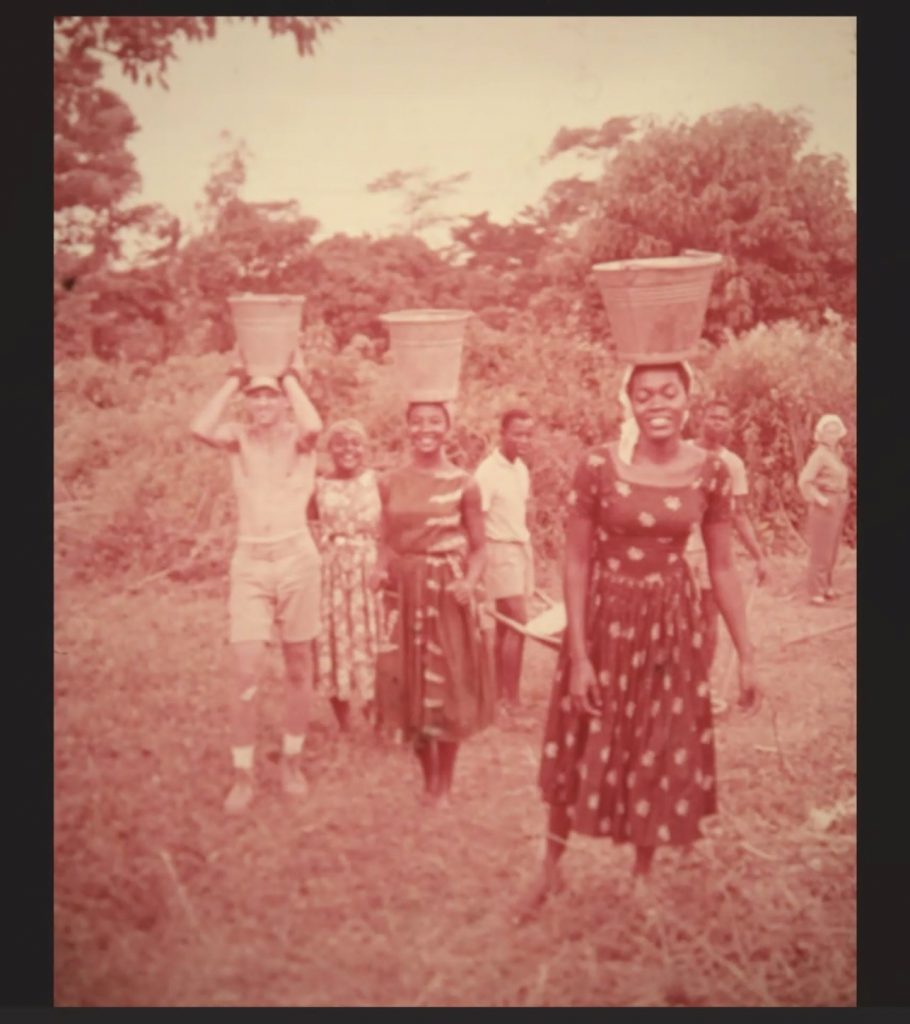
In the moments that followed, Trotter shifted gears, bringing up photos from Wood’s summer trip to Africa and the Middle East in countries such as Ghana, Nigeria, and Pakistan for his context and reflection on that adventure. Wood described knowing very little about Africa before he left, noting that the only books about Africa in the library were about popular character and vine-swinging aficionado Tarzan.
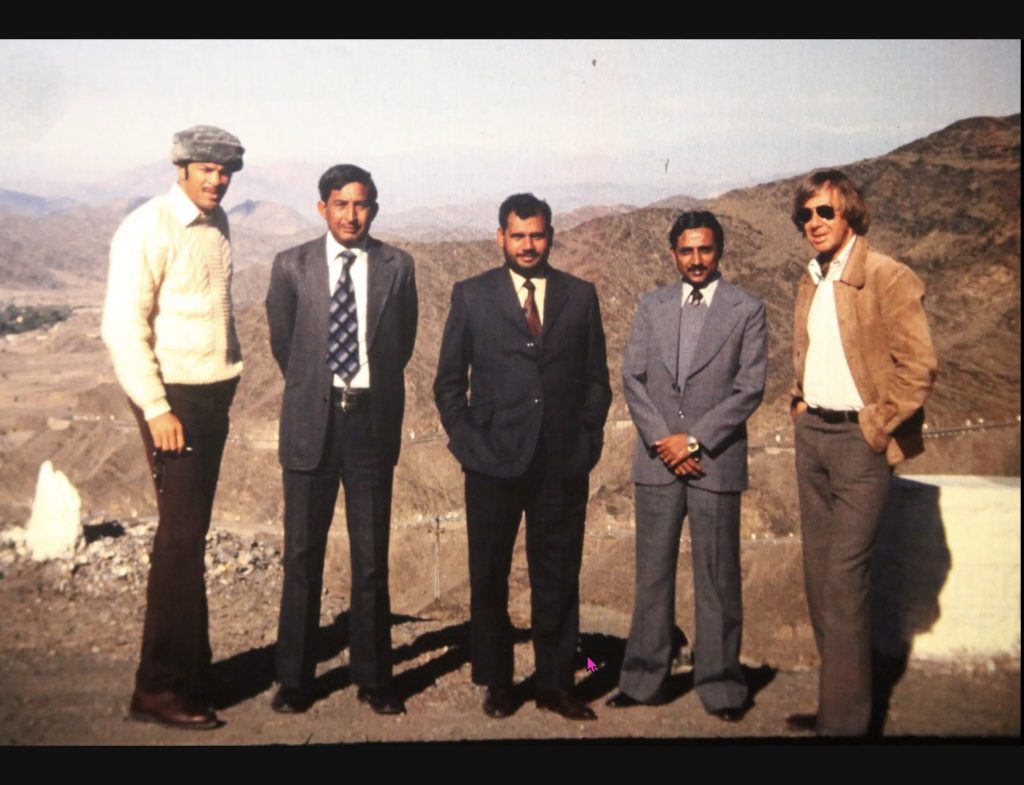
His adventurous and curious spirit led him all over the world during school and after graduation, with Wood noting that he “had to learn how to swim in different environments.” Trotter agreed, praising Wood’s adaptability from his time at Bucknell University to his times in Nigeria, Pakistan, and Dubai.
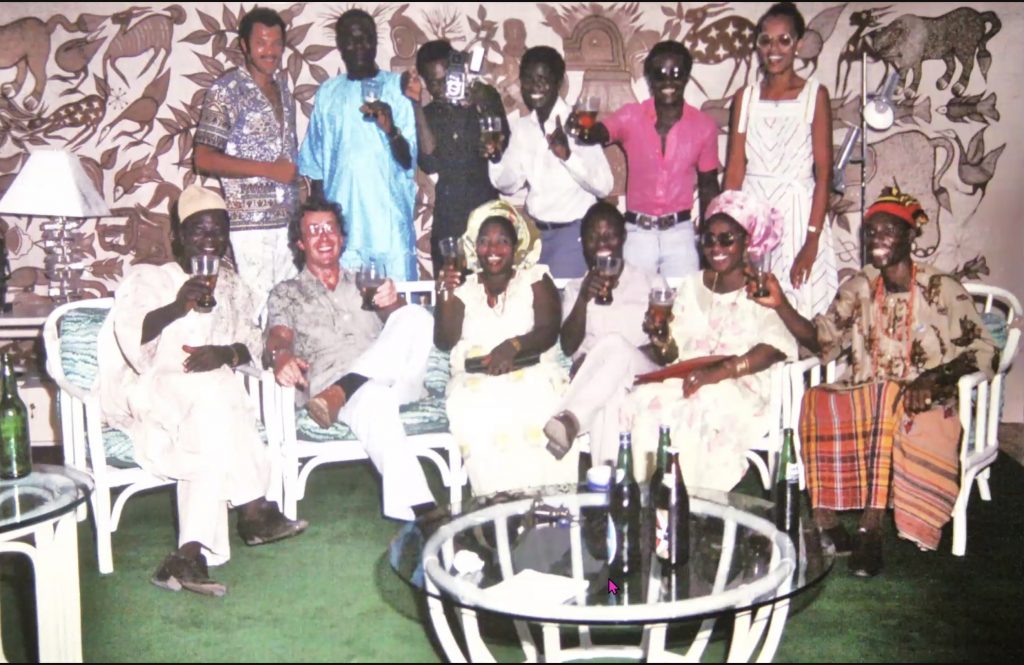
Trotter asks Wood for any final comments saying, “When I think about your story, I know that we are just scratching the surface. You have clearly been open to many different experiences and different people. You were a successful leader in every environment you entered. What thoughts would you leave the Bucknell community with after all that you have accomplished?”
Wood pauses for a moment, reflecting, before stating: “When I got out into the working world, I was one of the only blacks in the United States doing chemical engineering. I was unique, so the Bucknell experience was a good preparation for that. Before this conversation with you, I rewatched Dr. Martin Luther King’s speech at the March on Washington. At the time, I was in the army with my wife at the Air Force Academy in Colorado. My sister and parents were at the march, so we tuned in to watch and see if we could find them in the crowd. Martin Luther King talked about the bleak situation of [Black Americans] in the country. Now, all these years later, we have come a long way. We still have a long way to go, but if we keep going in the right direction, I think his dream will be fulfilled.”
Trotter closed the event thanking Wood for his time, “Frank Wood, I think it is powerful that you are overwhelmingly positive despite all that you have witnessed, what you have been through, and how you are willing to grow and embrace different people in different environments. We at Bucknell are appreciative of you, proud of you, we are grateful. Thank you so much for your time today, and on behalf of Bucknell University, we celebrate you.”
